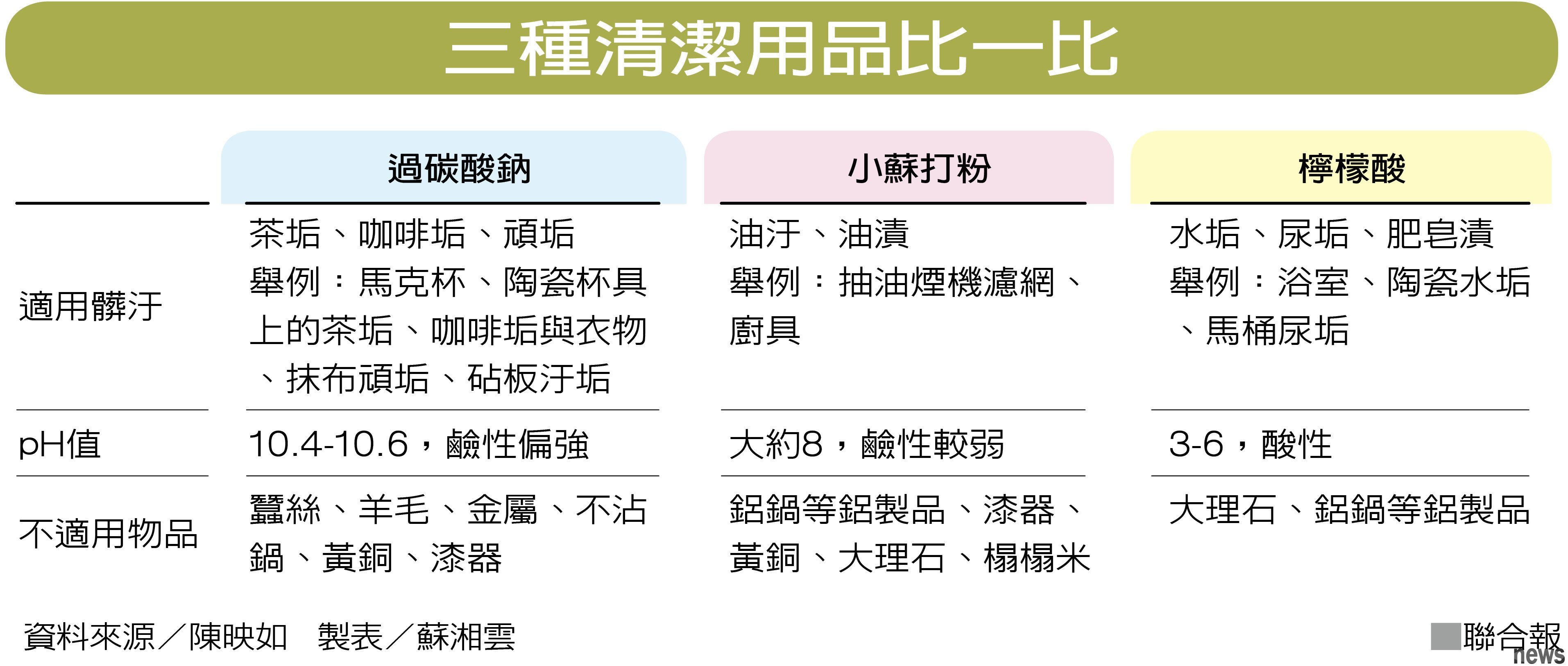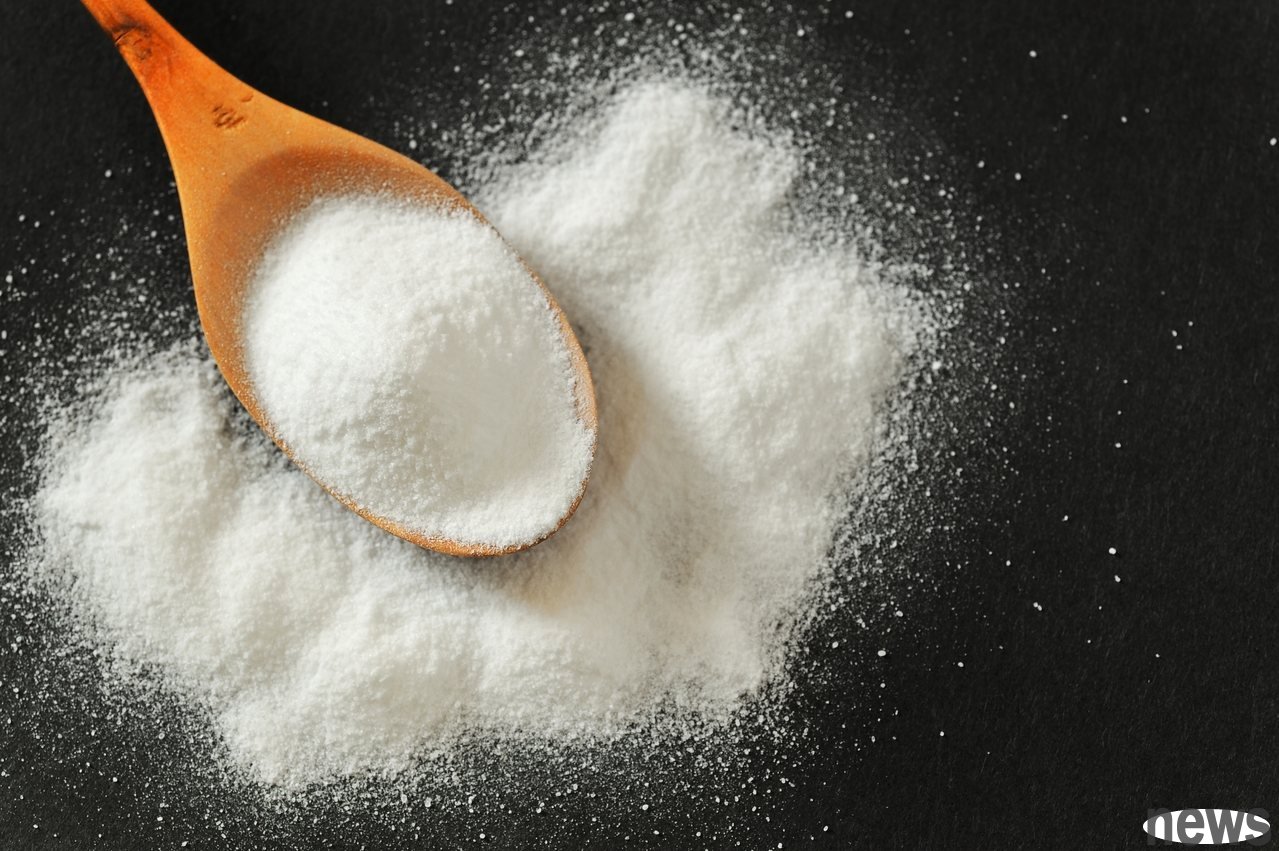
The three cheap "natural cleaning tools" on the market - carbonated pineapple powder, cucumber powder and citric acid are popular among the public. Housekeeping master Chen Yingru said that the use of these three natural cleaning products is not the same. Be careful not to mix them as much as possible to avoid greatly reducing the cleaning effect.
Over-carbonated carbonate: suitable for fighting dirt and dirt
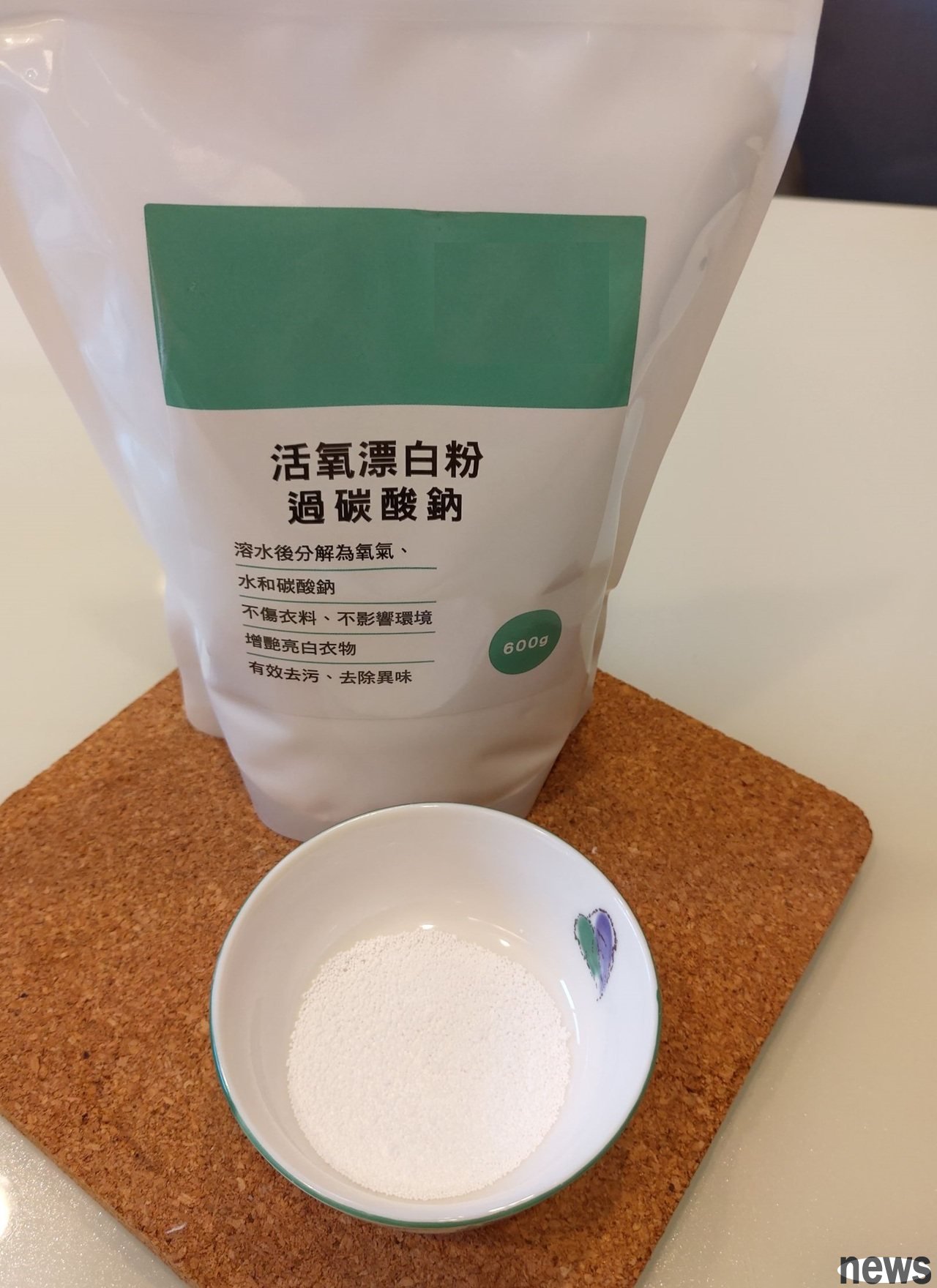 The English name of carbonate is Sodium Percarbonate, also known as reactive oxygen powder and reactive oxygen enzyme. Chen Yingru said that it can be purchased on large-scale markets, chemical banks, and online e-commerce platforms. It is mainly suitable for cleaning dirt and has antibacterial functions. All tea dirt and coffee dirt on ceramic cups and mugs, or dirt on cutting boards, rag dirt, clothing dirt, etc. are suitable for using carbonate treatment.
The English name of carbonate is Sodium Percarbonate, also known as reactive oxygen powder and reactive oxygen enzyme. Chen Yingru said that it can be purchased on large-scale markets, chemical banks, and online e-commerce platforms. It is mainly suitable for cleaning dirt and has antibacterial functions. All tea dirt and coffee dirt on ceramic cups and mugs, or dirt on cutting boards, rag dirt, clothing dirt, etc. are suitable for using carbonate treatment.
It is worth noting that when carbonic acid is decomposed in water, it is easy to produce oxygen and other substances. When metal encounters a large amount of oxygen, it is easy to cause oxidation. Therefore, metal substances are not suitable for contacting carbonic acid. If clothing has metal buttons and buttons, it is easy to produce glans after contacting carbonic acid. If the carbonated pellet is not stuck, the pellet surface may be worn. Others such as veils, wool, ironware, yellow copper products, lacquerware, etc. should not be touched by carbonated pellets.
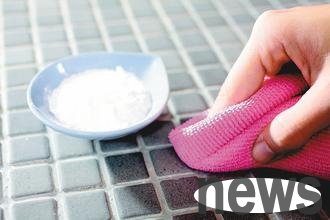 The English name of Xiaosu powder is Sodium Hydrogen Carbonate, which is carbonated hydrochloric acid. Chen Yingru pointed out that Xiaosu powder has a particularly strong ability to remove oil. If you want to clean the kitchen oil pumping and smoke filter network, it is recommended to use cheap and easy-to-buy industrial powder to make powder with Xiaosu powder, such as kitchen utensils, tableware, etc., and use Xiaosu powder to clean it, and the effect will be quickly achieved. Xiaosu powder can also be used for plastic products, but "do not use powder directly, as it can easily wear the plastic surface." In addition, Xiaosu powder is not suitable for aluminum products, lacquerware, tatami and other items.
The English name of Xiaosu powder is Sodium Hydrogen Carbonate, which is carbonated hydrochloric acid. Chen Yingru pointed out that Xiaosu powder has a particularly strong ability to remove oil. If you want to clean the kitchen oil pumping and smoke filter network, it is recommended to use cheap and easy-to-buy industrial powder to make powder with Xiaosu powder, such as kitchen utensils, tableware, etc., and use Xiaosu powder to clean it, and the effect will be quickly achieved. Xiaosu powder can also be used for plastic products, but "do not use powder directly, as it can easily wear the plastic surface." In addition, Xiaosu powder is not suitable for aluminum products, lacquerware, tatami and other items.
Little Su powder also has a deodorizing function. Chen Yingru suggested that you can put the Little Su powder into the refrigerator, shoe cabinet, etc. to help remove the odor. After a month, you can do other cleaning purposes. This will help you use one thing for two purposes, saving money and environmentally friendly.
Titic acid: suitable for cleaning scale, urine scale, soap scale
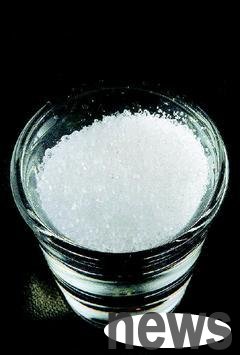 The English name of citric acid is Citric Acid, also known as citric acid. It is mainly used to remove scattered water, urine scale or soap scale. It can also be used in ceramic products, but it cannot be used in marble, aluminium flask and other aluminium products.
The English name of citric acid is Citric Acid, also known as citric acid. It is mainly used to remove scattered water, urine scale or soap scale. It can also be used in ceramic products, but it cannot be used in marble, aluminium flask and other aluminium products.
Some netizens believe that Xiaosu powder and citric acid cannot be used for cleaning the washing machine. Chen Yingru explains that Xiaosu powder and citric acid can be used to clean the washing tank in the washing machine. However, it must be placed in the washing tank and cannot be poured directly in the washing tank.
Notes on the use of three types of cleaning toolsDirector of the Clinical Toxicity Center of Linkou Changgeng Hospital, Yang Zonghai, pointed out that since the acid ginger value (pH value) of carbonate is 10.4-10.6, the acid linger value of Xiaosu powder is 8, and the acid linger value of citric acid is between 3 and 6. If the respiratory tract is more sensitive, or you are worried that these substances may irritate the skin and eyes, it is recommended to wear a mask, gloves or eye lens when using it to avoid irritation and causing inappropriateness.
The three kinds of cleansing magical, although they are natural and easy to use, still have a shelf life, with an average of three years. If stored for a long time, they will be overdue and blocked. Since the amount of use is not large at a time, in order to avoid wasteful expenses during the period, Chen Ying does not recommend stocking up in large quantities, and should buy branded and complete products, so that it will not affect the cleaning ability due to excessive quality.
Comparison of the three natural cleaning tools: carbonated calcines, sulphate, and citric acid!
